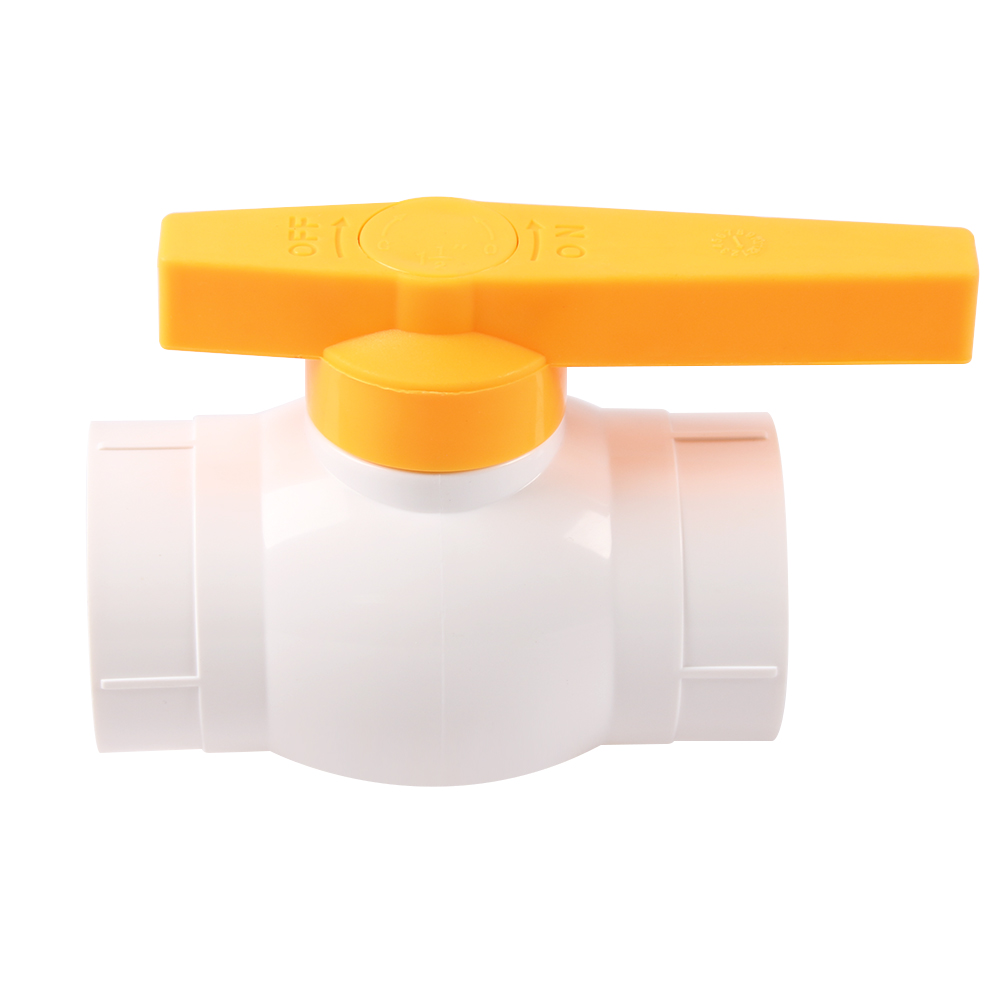In any fluid management system, the choice of components plays a crucial role in ensuring optimal performance, durability, and efficiency. Among these components, CPVC ball valves stand out for their versatility, corrosion resistance, and ability to handle a wide range of applications, from residential plumbing to industrial pipelines. However, selecting the right CPVC ball valve for your specific needs requires a thorough understanding of its features, benefits, and suitability for various scenarios.
This guide will walk you through the essential factors to consider when choosing the perfect CPVC ball valve for your system.

What is a CPVC Ball Valve?
A CPVC ball valve is a type of quarter-turn valve made from Chlorinated Polyvinyl Chloride (CPVC). It consists of a spherical disc (the “ball”) with a hole through the center that controls fluid flow. By rotating the ball 90 degrees, the valve either allows or restricts the flow.
CPVC ball valves are highly valued for their:
- Resistance to high temperatures.
- Chemical and corrosion resistance.
- Lightweight yet durable construction.
- Low maintenance requirements.
Factors to Consider When Choosing a CPVC Ball Valve
- Application Requirements
Start by understanding the specific needs of your application. CPVC ball valves are commonly used in:
- Residential Plumbing: Hot and cold water systems.
- Industrial Pipelines: Chemical transport and processing.
- Irrigation Systems: Controlling water flow in agricultural setups.
Identify the operating conditions, such as pressure, temperature, and the type of fluid, to ensure compatibility with CPVC material.

- Size and Connection Type
CPVC ball valves come in various sizes, typically ranging from ½ inch to several inches in diameter. Choose a size that matches the pipe diameter in your system.
Additionally, consider the connection type:
- Socket Ends: Ideal for solvent welding.
- Threaded Ends: Suitable for systems requiring easy disassembly.
- Flanged Ends: Used in industrial setups for robust connections.
- Pressure and Temperature Ratings
Check the valve’s pressure and temperature ratings to ensure it can handle the operating conditions of your system. CPVC ball valves are known for their high-temperature resistance, often tolerating temperatures up to 200°F (93°C). They also perform well under moderate pressure conditions.
- Material Quality
Ensure that the CPVC material used in the valve is of high quality. Look for:
- UV-resistant properties for outdoor use.
- Certifications such as NSF/ANSI 61, indicating suitability for potable water systems.
- Chemical resistance to handle aggressive substances like acids and alkalis.
- Type of Ball Valve
Choose the right type of ball valve based on your flow control needs:
- Full Port (Full Bore): The hole in the ball matches the pipe diameter, allowing unrestricted flow.
- Reduced Port (Reduced Bore): The hole is smaller than the pipe diameter, creating a slight restriction.
For applications requiring minimal pressure drop, a full port valve is the better option.

- Handle Design and Operation
The handle design of the CPVC ball valve affects its usability. Opt for valves with ergonomically designed handles that offer a firm grip for easy operation. Some advanced models also include lockable handles for added security.
- Maintenance and Durability
A reliable CPVC ball valve should require minimal maintenance and offer a long service life. Features like self-lubricating seals and corrosion-resistant construction contribute to durability and hassle-free performance.
- Cost-Effectiveness
While CPVC ball valves are generally more affordable than metal alternatives, the cost can vary depending on size, design, and quality. Evaluate the long-term benefits, such as reduced maintenance and energy efficiency, to determine the overall value of your investment.
Benefits of Choosing CPVC Ball Valves
CPVC ball valves offer several advantages that make them a preferred choice across industries:
- Corrosion Resistance: Unlike metal valves, CPVC valves resist rust and corrosion, even in harsh chemical environments.
- Temperature Resistance: Suitable for both hot and cold fluid systems.
- Lightweight Design: Easier to install and handle compared to metal valves.
- Cost-Effective: Lower upfront and maintenance costs without compromising performance.
- Leak-Proof Operation: Precision-engineered seals ensure reliable flow control.
Common Applications of CPVC Ball Valves
CPVC ball valves find use in a variety of settings, including:
- Water Treatment Plants: To regulate water flow and prevent leaks.
- Chemical Processing: Safe transport of aggressive chemicals.
- Food and Beverage Industry: Hygienic fluid handling solutions.
- Residential Plumbing: Efficient and durable flow control for household water systems.
Why Choose Us as Your CPVC Ball Valve Supplier?
As a trusted supplier of CPVC ball valves, we are committed to delivering products that meet the highest standards of quality and performance. Here’s what sets us apart:
- Extensive Inventory: A wide range of CPVC ball valves to suit diverse applications.
- Custom Solutions: Tailored valves for unique project requirements.
- Competitive Pricing: Affordable rates without compromising on quality.
- Expert Guidance: Dedicated support to help you choose the right valve for your system.
Conclusion
Selecting the right CPVC ball valve is essential for ensuring efficient and reliable performance in your piping systems. By considering factors like application requirements, size, material quality, and maintenance needs, you can make an informed choice that meets your specific needs.
Whether you’re managing a residential plumbing project or an industrial pipeline, CPVC ball valves offer the perfect balance of durability, cost-effectiveness, and performance. Partner with Petron Thermoplast to access high-quality CPVC ball valves designed to excel in a variety of applications.
